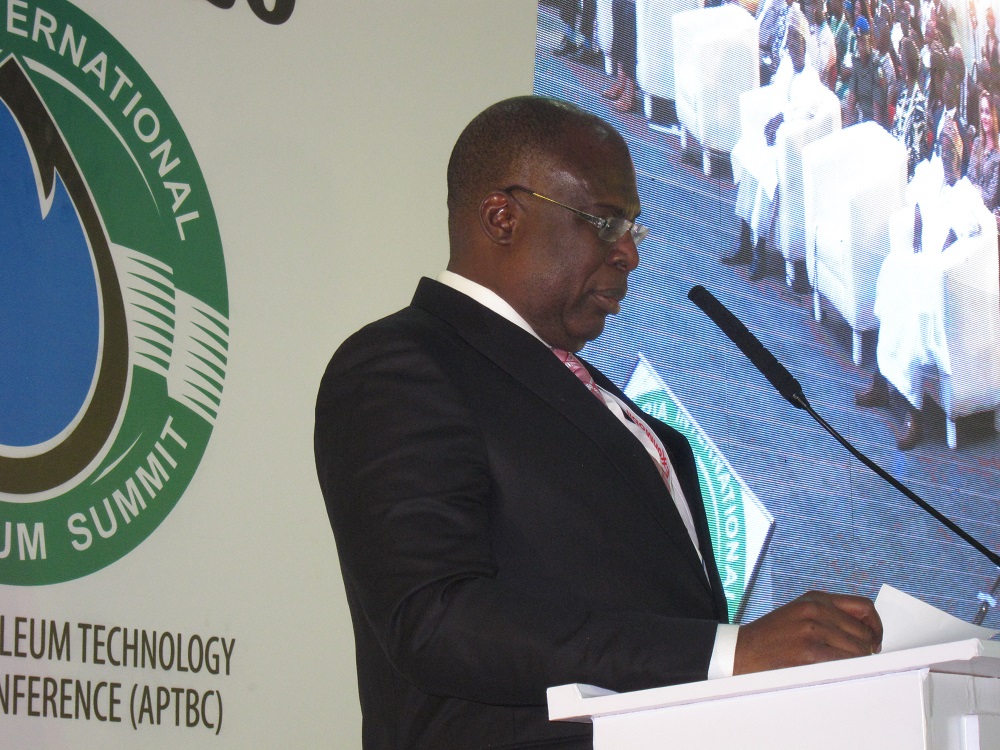Mr. Timipre Sylva, Minister of State for Petroleum Resources
… Calls for the use of enormous gas deposits to grow economy
-By Olufunke Afolami
The Minister of State for Petroleum Resources, Timipre Sylva has launched the Nigerian Gas Transportation Network Code (NGTNC). “It has been a very successful journey with a lot of collective commitment that enabled us to attain this important milestone.”
The Minister stated thus: “I need not reiterate to this audience the immense opportunities that Nigeria’s Gas Resource affords with our Gas Reserves position at 200.79 Trillion Cubic Feet (TCF) as at 1st January 2019. The drive to optimally explore and produce this resource is driving government’s aspirations for energy security, economic diversification, job creation and enhanced revenue generation.”
He said gas and its derivatives as envisaged in the National Gas Policy would surely catalyse the country’s economic growth and the need for gas transportation infrastructure has, to a large extent, to be put in place for the sector to develop.
Sylva made it clear that the country’s policy directions are geared towards addressing the infrastructural challenge. Accordingly, the Nigerian Gas Master Plan (NGMP), the National Domestic Gas Supply 8: Pricing Regulation, 2008 (Section 2 (f & g), and the National Gas Policy 2017 (Section 4.3.3) all stipulate the introduction of Gas Transportation Network Code to guarantee open access to the Network.
The Code is a contractual framework between the gas transportation network operator and gas shippers that specifies the terms and guidelines for Operation and use of the Gas Network.
Consequently, in line with Government’s policy to reinforce and expand gas supply and stimulate demand through the National Gas Expansion Programme, the Code will provide open and competitive access to gas transportation Infrastructure and development of the Nigerian Gas Sector. Also, the Code will stimulate the domestic Gas market, drive gas-based industrialisation and the realisation of the government’s aspiration to move 100 million Nigerians out of poverty.
The Minister noted that the Code in its current form has in-built modification mechanisms. Hence, all stakeholders are assured of the periodic review of the network Code to suit the dynamics of the industry.
The launching of the Gas Network Code was effective from 10th of February 2020, the Nigerian Gas Transportation Network Code shall apply to all gas transportation arrangements between gas transporter and gas shipper as defined in the Code.
CONDITIONS OF THE GAS NETWORK CODE
Firstly, the transporter and all existing users of the transportation network shall, within six (6) months of the date of this Directive, migrate from existing Gas Transportation Agreements to the Network Code by executing the necessary Ancillary Agreements.
Secondly, all new and intending users shall make use of the Network based on the terms and conditions provided In the Network Code.
Thirdly, while the Network Code remains the uniform protocol for users of the Gas Transportation Network and can only be modified in accordance with relevant provisions therein, the Ancillary Agreements are negotiated by the relevant parties.
During the event which was declared open by Mr. Boss Mustafa, Secretary to the Government of the Federation on behalf of the President, H. E. Muhammadu Buhari GCFR, the Minister restated the need to use the enormous gas deposits in Nigeria to grow the nation’s economy as the government’s focus is to address the challenges in the sector.
The gas network code, according the Minister, stipulates terms and guidelines of gas transportation, specifically applying between gas producers, shippers and their agents. Its provisions allow a window of six months for legacy agreements to migrate onto the network code while new and intending agreements are expected to align with the new code.
Speaking during a panel session on the heels of the launch of the gas network code at the summit, Abel Nsa, Assistant Director, Department of Petroleum Resources (DPR) explained that the network code is a set of rules and contractual framework between producers and transporters.
“It provides transparency and a level playing field for everyone who wants to come into the gas system. It is like a protocol to move gas within the system,” Nsa said.
Mrs. Audrey Joe-Ezigbo, President of the Nigerian Gas Association (NGA), expressed the pleasure of her association at the launching of the code, adding that it will help Nigeria become a mature gas market.
“The code will attract more investors into pipeline infrastructure,” said Joe-Ezigbo.
Up till now, the Nigerian Gas Company (NGC) has remained a sole operator providing pipeline infrastructure in the Nigerian gas market.
In his own contribution, Dr. Salihu Jamari, Managing Director of the Nigerian Gas Company (NGC) noted that his company has been upgrading its facilities in expectation of the launching of the network code.
“We are making sure that metering is available at every point in the network. The Nigerian Gas Company is very much aware of its role in the implementation of the network code,” Jamari stated.
Nigeria’s huge gas reserves made people to describe the country as a gas province with a sprinkling of oil. According to data from the Nigerian National Petroleum Corporation (NNPC), the country has around 202 trillion cubic feet (TCF) of proven gas reserves plus about 600 TCF unproven gas reserves.
Over the years, the country’s relatively smaller oil reserves has been the major focus for government and international oil companies in the country who find it easier and more profitable to produce oil rather than gas. Government in recent years stepped up its effort to support gas development, grow the economy by opening the gas market through export and encourage domestic use of gas in power generation and household use.


Comment here